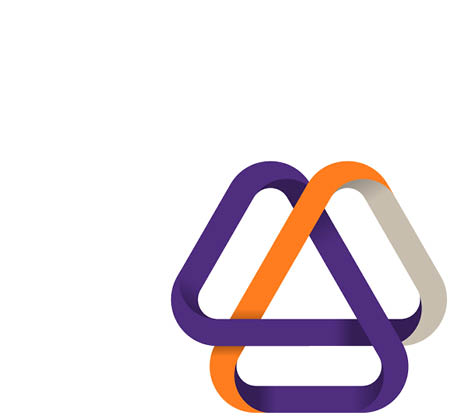-
Sector Focus
We specialise in the investment management industry offering audit, assurance, tax and corporate recovery and liquidation services.
-
Personal Tax Services
There are many tax rules that can affect you personally and therefore which will have an impact on your personal wealth.
-
QI Compliance
Qualified Intermediaries (QI) have to take action now to perform a Certification to the Internal Revenue Service (IRS).
-
Download our tax brochures
The tax teams at Grant Thornton aim to provide the Channel Islands with a premier tax advisory service both to private clients and the business community including the investment management industry.
-
Jersey Tax Return
A secure sign in page to file Jersey Tax Returns through the Grant Thornton tax portal.
-
ESG
ESG can either be seen as a risk management tool or an opportunity, either way it is imperative to your business, whatever your size and whether you are listed or not.
-
Professional Services
Business and accounting support for professional services
-
Finance Industry
We work with a broad range of clients and their financial stakeholders, from entrepreneurs in the early days to fast growing and established businesses to public companies competing in global markets.
-
Local Businesses
Businesses come in many shapes and sizes – from innovative start-ups to long-established local businesses. But however large or small your business, the chances are you face similar challenges.
-
Corporate Insolvency
Our corporate investigation, Guernsey liquidation and recovery teams focus on identifying and resolving issues affecting profitability, protecting enterprise value and facilitating a full recovery where possible.
-
Corporate Simplification
Redundant corporate entities can over complicate group structures and waste thousands of pounds in unnecessary costs each year. 46% of the c.15,500 companies controlled by the FTSE100 are dormant and it is estimated that the average cost of administering dormant companies is between £3,500 and £5,000 per company, per year.
-
Debt Advisory
Our Debt Advisory team provides commercial and financial debt advice to corporate entities and public sector bodies in a range of sectors. Our engagements include advice on stand-alone transactions and solutions or as part of an integrated business plan, in both the project and corporate arenas.
-
Exit Strategy Services
We offer a tailored methodology designed to enable a company to be reviewed in a group context to assess ways to maximise its value.
-
Financial Restructuring
For companies challenged by under-performance we work with management teams, shareholders, lenders and other stakeholders to implement financial restructuring solutions creating a stable platform for business turnaround.
-
Strategic performance reviews
Strategic performance reviews analyse the key drivers of performance improvement. Our specialists utilise a framework to evaluate financial and operational options and to identify solutions for businesses and their stakeholders.
One had to feel a little bit sorry for Rishi Sunak as he stood to deliver his first Budget. He has only been in office 5 minutes, Brexit in reality has only just started and he had been given the job because the previous Chancellor resigned on principle, and the one before was banished.
To make matters worse, he had to deliver a Budget with the huge cloud of COVID-19 hanging over him and the global economy.
As you wash your hands for 20 seconds to Happy Birthday, is this time enough to consider what the Chancellor had to say in relation to how the UK budget affects the islands, or will you now need the 6 minutes of Bohemian Rhapsody or even longer…?
The opening verse was all about supporting the economy through the current crisis caused by the coronavirus. The chorus throughout was “The Government that gets things done”. This chant was repeated relentlessly as he waltzed through measure after measure of initiatives to keep the economy dancing. He promised unrestricted support to the NHS, sick pay relaxations, business rates reliefs, and many other plans to keep the economy as buoyant as possible. He even announced freezes on alcoholic duties – maybe to make 14 days of self-isolation more bearable?
He announced further investment in the North, investment in Education (including playing fields), better 4G coverage and the alignment of digital publications with the physical counterparts.
The underlying tune was that this was a Budget for security and for prosperity in the future. A seemingly open cheque book for immediate help and for future growth.
As for the islands, a few points of note:
- Corporation tax remains at 19%. Given the move for non-resident UK property owners from Income tax to corporation tax, this is potentially a rate hike, as the reliefs available under corporation tax are nowhere as generous as we saw under income tax and the non-resident landlord scheme.
- Whilst bashing the foreign property owner, the introduction of a non-UK resident Stamp Duty Land Tax (SDLT) surcharge will affect non-residents investing in UK residential property. The UK government will introduce a 2% SDLT surcharge on non-UK residents purchasing residential property in England and Northern Ireland from 1 April 2021. Although we have not yet examined the detail, we would expect the duty to flow through all ownership structures.
- On a brighter property note, the annual rate of capital allowances available for qualifying investments to construct new, or renovate old, non-residential structures and buildings, will increase from 2% to 3%. The change will take effect from 1 April 2020 for corporation tax and 6 April 2020 for income tax.
- To try and make the UK tax environment more competitive, there were reforms to the intangible fixed assets regime to reinforce the attractiveness of the UK as a place for businesses to own and manage intellectual property, as well as an industry working group on the future of VAT and financial services. The islands take note that our own industries need to ensure that we remain light on our feet.
- Many of the investment funds currently marketed in the UK are domiciled in the EU, gaining market access into the UK through the EU passporting regime. Following the UK’s departure from the EU, the passporting regime will cease at the end of the transition period. The Government has introduced a temporary regime to allow EU funds to continue marketing in the UK, in a similar way for a limited time after the end of the Transition Period, after which, the funds will have to gain permanent market access into the UK. This new consultation sets out the UK government’s proposal for a new process for allowing investment funds domiciled overseas to be sold to UK investors, to replace the existing regime.
- Given the recent troubles with our air links, Air Passenger Duty rates will increase in line with RPI for 2021-22, meaning that short haul rates remain frozen at £13, benefitting 80% of passengers. The rate for long haul economy will increase by £2, and the rates for those travelling in premium economy, business and first class will increase by £4. Those travelling long-haul by private jets will see the rate increase by £13. A review however is planned.
- The government will legislate prospectively and retrospectively in the Finance Bill 2020 to put beyond doubt that LLPs should be treated as general partnerships under income tax rules. This measure does not create any new or additional obligations or liabilities for taxpayers, instead, it clarifies the legislation to ensure the rules work as designed and intended.
- A UK Budget would not be a Budget unless tax avoidance was mentioned. The Budget announced a set of targeted measures to ensure that UK businesses pay the tax they owe. This includes measures “to crack down on tax abuse in the construction industry, illicit tobacco, and among big business”, as well as further measures to tackle the promoters of tax avoidance schemes. The attention grabbing statistics were again tapped out “Since 2010 the government has secured and protected over £200 billion of tax that would have otherwise gone unpaid. The Budget builds on this work and announces further action to tackle tax avoidance, evasion and other forms of non-compliance that will raise an additional £4.7 billion between now and 2024-25.”
- Finally he proclaimed that they would spend £500m in order that I could walk miles without encountering a pot hole. I suspect he will need 500 more to be the man that removed all potholes from in front of your door.
In conclusion, there are some aspects of the Budget that need some further inspection, but probably not the full 6 minutes suggested by Freddie Mercury. With so much uncertainty for all, can I suggest a gentle sway to the Beatles, “The long and winding road” at 3 minutes 40 seconds, may be the most appropriate to consider the Budget and the wider problems that we will undoubtedly face as we tip toe through the coming months.

